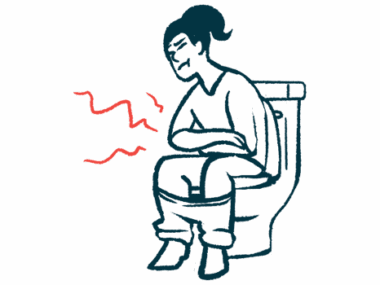New Gene Mutation Seen in Family With HCP, Unusual Symptoms
Written by |

A family with a new hereditary coproporphyria (HCP) mutation having frequent, severe attacks and blood clots was described in a new case report.
The report, “High penetrance, recurrent attacks and thrombus formation in a family with hereditary coproporphyria,” was published in JIMD Reports.
HCP is the rarest subtype of acute porphyrias, with an estimated incidence of 0.02 cases per 10 million per year. It affects women more than men and is considered a “low penetrance” disorder, meaning many people who carry disease-causing mutations rarely show symptoms.
However, the current case report describes seven HCP cases from one family with unusually high penetrance (recurrent attacks) and severe blood clotting complications.
“This cohort is unusual for several reasons. First, the penetrance is very high. Second, this family is suffering an unusually high rate of recurrent attacks,” the researchers wrote. “Finally, the incidence of VTE [venous-thromboembolism, blood clots] is high.”
The first case was a 21-year-old woman who had a contraceptive device (Mirena) fitted in her womb. HCP was confirmed with urine testing, showing raised porphobilinogen (PBG) and porphyrin-creatinine ratio, and stool testing showed elevated porphyrins.
Porphyrins are intermediate molecules that are part of the signaling cascade leading to heme production, which is disrupted in all types of porphyria, leading to their buildup in different parts of the body. Heme is a molecule that plays a key role in oxygen transport.
A genetic test also revealed she had a previously unknown mutation in the coproporphyrinogen oxidase (CPOX) gene called c.863 T > G.
Her first attack was brought on by a stomach virus infection. The attack was life-threatening, causing serious abdominal pain and brain swelling.
While receiving into-the-vein (intravenous) heme arginate for the attack, she developed deep vein thrombus (DVT, blood clots) at the injection site and was treated with the blood-thinning agent warfarin.
She had four subsequent attacks that led to hospitalizations. However, she reported having several other episodes of abdominal pain, but avoided going to the hospital.
Her case led to genetic testing of six other members of her family; all were found to carry the same CPOX mutation.
The second case was the woman’s sister. She had a history of depression and anxiety, and was diagnosed with HCP due to raised urine PBG and porphyrin-creatinine ratio and stool porphyrins. She had severe abdominal and leg pain during her first attack and was treated with intravenous heme arginate. However, she developed blood clots during treatment, despite receiving blood-thinning agents.
The woman had 43 hospital admissions from attacks and frequent pain flares. Standard pain medications, gabapentin, and tricyclic agents were ineffective, but treatment with Givlaari (givosiran) — an approved therapy for acute hepatic porphyria — significantly reduced her pain. She was also prescribed a multivitamin containing folic acid, vitamin B6, and B12.
The five other cases were the sisters’ female cousin, male cousin, mother, aunt, and grandfather. The female cousin reported 19 admissions with attacks and pain episodes, and just like the sisters, she developed blood clots during treatment. She also had a history of depression.
The sisters’ mother had a history of anxiety, depression, and abdominal pain. She reported one HCP attack with abdominal pain, but no blood clots. Their aunt, a post-menopausal woman also with a history of anxiety, depression, and abdominal pain, had no documented attacks and blood clots. Her abdominal pain resolved after menopause.
The male cousin (brother to the female cousin) and grandfather have not had consistent attacks and appear to have no symptoms.
Since all four women with confirmed attacks were of reproductive age, but the men and aunt in menopause were not having attacks, researchers believe attacks in this HCP subtype are related to hormonal changes.
“Given that all four women with confirmed attacks are of reproductive age and that both males are latent, we speculate that penetrance for this mutation is particularly sensitive to hormonal fluctuations. This is consistent with case 5 who stopped suffering abdominal pain following menopause,” they wrote.
“This HCP cohort has unusually high penetrance and recurrent attacks compared with the literature. This is speculated to be due to increased susceptibility to hormonal factors. In addition, this cohort may have an elevated risk for [blood clots] but this remains speculative,” the researchers wrote.
International registries with larger sample sizes may be necessary to learn more and develop strategies to manage HCP, they said.






